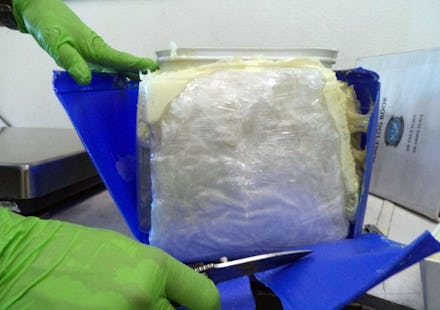New Study on Drug Use Confirms What Black People Have Been Saying This Whole Time

A recent study published in the American Journal of Public Health found that delinquent, non-Hispanic whites are more likely to abuse "hard drugs," such as cocaine or opiates, than their black counterparts, which might be news for some Americans. But for many blacks across the nation, the study confirms what was already known.
The study, which took place over 12 years, found that the rates of hard drug abuse was "highest among non-Hispanic whites, followed by Hispanics then African-Americans." The research found that whites were more than 30 times likely to have cocaine-use disorder, 50 times more likely to develop opiate-use disorder, and 18 times more likely have PCP-use disorder than blacks.
Read more: La Cocina Is Working to Ensure Women of Color Can Succeed in the Restaurant Industry
"Those findings are striking considering the widely accepted stereotype of African-Americans as the most prevalent abusers of 'hard drugs,'" Linda A. Teplin, professor of psychiatry and behavioral sciences at Northwestern University and author of the study, said in a statement. "Our findings add to the growing debate on how the war on drugs has affected African-Americans."
Researchers studied more than 1800 delinquent youth and followed their lives through their late 20s. "We found that African-Americans are less likely than other racial/ethnic groups to abuse hard drugs," Teplin said. "Yet, African-Americans are disproportionately incarcerated for drug crimes."
However, some people pointed out that the study's findings were already somewhat acknowledged, especially among black people. Jonathan Wall, a law student at Harvard University, started a thread full of studies that can easily be confirmed by black people.
The results of the study called for two public policy efforts: Pointing out the disproportionate numbers of black Americans that are imprisoned due to drug-related arrests, and improving the services dedicated to helping prisoners, both before and after their sentences.